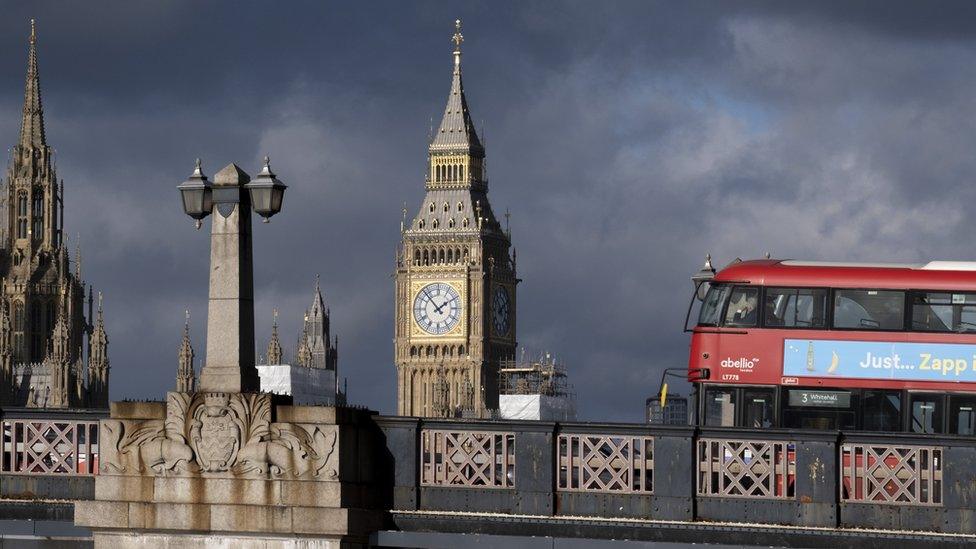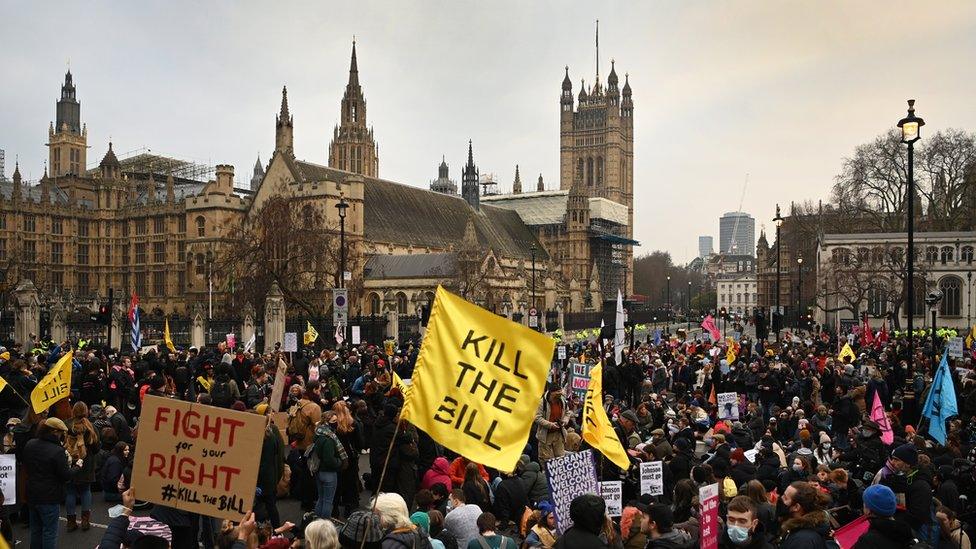What's happening in Parliament next week?
- Published

Deadline pressure is beginning to loom in Parliament.
The current parliamentary year is drawing, not so peacefully, to its close.
Between the crisis in Ukraine, the "party-gate" investigations facing the prime minister, the relaxation of Covid restrictions and the impact of Storm Eunice, there's a whole lot of law-making to complete before Parliament is suspended, ahead of the next parliamentary year beginning with a new programme of legislation.
Westminster insiders believe the government is aiming to prorogue Parliament, as it is technically called, at or around 27 April.
This would then allow a state opening - where the Queen officially opens a new parliamentary year - to be pencilled in for 10 or 11 May.
Factor in the Easter holiday, and that leaves six weeks to finalise some pretty major legislation.
The Police, Crime, Sentencing and Courts Bill - extensively re-written in the Lords where the government was defeated on 19 different issues - is due back in the Commons to allow MPs to react to the changes made by peers.
The bill could then bounce back and forth between the Lords and Commons a number of times.
MPs will also have to respond to significant changes to the Dissolution and Calling of Parliaments Bill, where peers have written in a requirement that they should vote on whether a general election should be called.
But the most serious pinch-point is in the Lords, where the Health and Care Bill and the Nationality and Borders Bill are both due for report stage in the week beginning 28 February.
On recent form, they're likely to see extensive changes, in the teeth of government opposition.

The government's policing bill has prompted several demonstrations, including a protest outside Parliament last month
Peers have already found themselves sitting into the small hours of the morning to debate some of these mega-bills, and tempers are fraying, with a tetchy exchange between the Leader of the Lords, Lady Evans, and Labour's Baroness Chakrabarti confirming the nasty atmosphere.
And that's not the last of it.
Peers have not yet had their first debate on the Elections Bill, or the Nuclear Energy (Finance Bill).
These two bills have to get to the finishing line by the end of April as well - with the Commons having the chance to accept or reject any amendments made along the way.
The difficulty for the government is that there's only a narrow window in which a state opening can be held - between the local elections on 5 May and the start of the Queen's Jubilee celebrations.
If ministers can't get all their legislation through, the choice is between ditching some of it, or seeing Parliament languish for an extra few weeks, rather than start dealing with the programme of new legislation intended to provide the government's post-pandemic re-launch.
Up and coming issues
Which brings me to the week ahead, where most of the legislating looks pretty low-key - although the Lords' timetable has been elongated to get their debates on the detail of various bills done.
The major events look set to be statements or urgent questions on Ukraine and Storm Eunice, and the announcement of any new decisions on Covid policy.
But peer into the detail of the agenda, and some up and coming issues are manifesting themselves.
Look out for the Treasury Committee hearing on the latest inflation figures on Wednesday - it's been a while since inflation reports were headline news.
The Transport Committee session on HS2 on Thursday looks set to raise some serious levelling-up questions, with West Yorkshire Mayor Tracy Brabin unlikely to hold back about the implications of her region not getting a branch of the high speed line.
And the Petitions Committee debate on Monday on reforming the Gender Recognition Act dips parliamentary toes into an issue that MPs are bound to return to.
